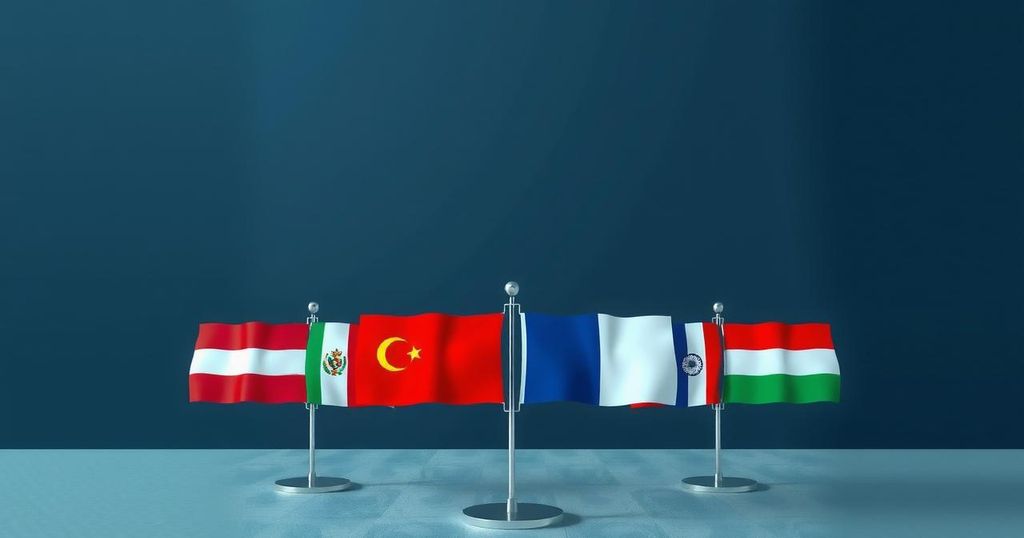World news
AMERICA, ANDREW NAPOLITANO, ASIA, CANADA, EUROPE/ASIA, GEOPOLITIC, GLOBALCONFLICT, INTERNATIONAL RELATIONS, IRAN, LA, MARIO NAWFAL, MOSCOW, NASA, NORTH AMERICA, PRESIDENTIAL ELECTIONS, RIDGLAN FARMS, RUSSIA, SANCTIONS, SERGEY LAVROV, U. S, WAR, WORLD NEWS, WORLDNEWS
Fatima Khan
0 Comments
Russian Foreign Minister Lavrov Critiques U.S. Approaches to Iran
Russian Foreign Minister Sergey Lavrov has called the United States’ attempts to reduce Iran’s influence unrealistic, noting that linking political conditions to the Iran nuclear deal is impractical. Lavrov’s statements reflect rising tensions in the Middle East and highlight Russia’s assertive role in international relations, suggesting a shift in global power dynamics.
Russian Foreign Minister Sergey Lavrov has explicitly dismissed the United States’ aspirations to limit Iran’s influence in the region, characterizing Washington’s expectations as “unrealistic.” During a discussion with notable figures such as Mario Nawfal, Andrew Napolitano, and Larry Johnson, Lavrov emphasized that linking political conditions to the Iran nuclear agreement would not be successful. He asserted that efforts to restrict Iran’s support to its allies in Iraq, Lebanon, and Syria are unfeasible.
With rising tensions in the Middle East, Russia is positioning itself as a counterbalance to Western policies, particularly those of the United States. This assertion raises questions about the United States’ current global influence and effectiveness in international diplomacy. The dialogue highlights a shift in geopolitical dynamics and suggests the potential for a reevaluation of alliances and power structures in the region as both Russia and Iran continue to assert their positions.
In conclusion, Sergey Lavrov’s remarks signify Russia’s commitment to countering U.S. efforts to diminish Iran’s role in the Middle East. His declaration that U.S. conditions for the Iran nuclear deal are unrealistic underscores the changing geopolitical landscape. As Russia intervenes more assertively in regional affairs, it challenges the longstanding dominance of American foreign policy, prompting a reassessment of global power relations.
Original Source: www.channel3000.com




Post Comment